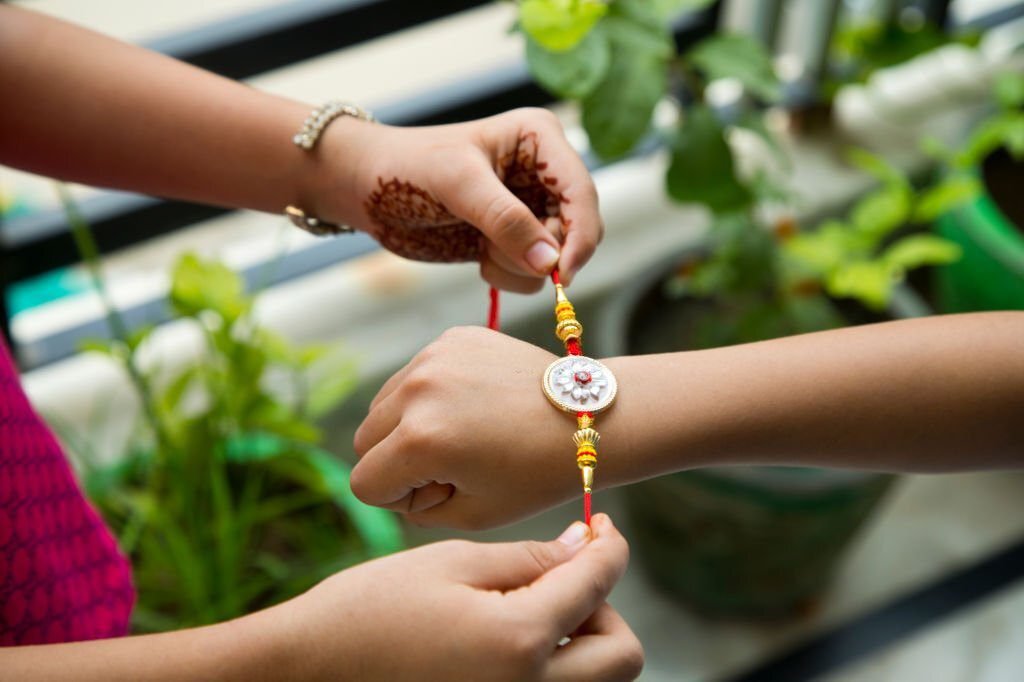
Rakshabandhan is one of the most popular and auspicious festivals in India, celebrated by millions of people across the country. It is a festival that honors the bond between brothers and sisters and symbolizes their love, respect, and protection for each other. On this day, sisters tie a sacred thread called rakhi on their brother’s wrists and pray for their well-being and prosperity. Brothers, in turn, promise to protect their sisters from all evils and troubles and shower them with gifts and blessings.
But did you know that Rakshabandhan is not just a festival of siblings, but also a festival of stories? Yes, there are many stories and legends associated with Rakshabandhan, that vary from region to region, and add to the richness and diversity of the Indian culture. In this blog, we will explore some of the stories that make Rakshabandhan special in Uttarakhand, the land of gods and goddesses, and show you how they celebrate Rakshabandhan.
Kumaoni Festivals: A Celebration Of Culture, Nature, And Harmony
The Legend of King Bali and Goddess Lakshmi
One of the most popular legends associated with Rakshabandhan is the legend of King Bali and Goddess Lakshmi. According to this legend, King Bali was a noble and generous king, who ruled over the three worlds with justice and compassion. He was also a great devotee of Lord Vishnu, who granted him many boons. However, this made the other gods jealous and insecure, as they feared that Bali would become more powerful than them. They asked Vishnu to help them in restoring the balance of power.
Vishnu disguised himself as a dwarf named Vamana and asked Bali for a boon of three steps of land. Bali agreed, but Vamana grew into a giant size and covered the earth and the sky with his two steps. He asked Bali where he should place his third step, and Bali offered his head. Vishnu was impressed by his honesty and humility and blessed him with immortality. He also asked him to leave the earth and go to the netherworld (Patala), where he would rule as the king. Bali agreed but requested Vishnu to stay with him as his protector. Vishnu agreed to this as well.
This made Goddess Lakshmi unhappy, as she missed her husband dearly. She decided to go to Patala and bring him back. She disguised herself as a poor Brahmin woman and befriended Bali. On the day of Shravan Purnima (full moon day in the month of Shravan), she tied a rakhi on Bali’s wrist and prayed for his happiness and well-being. She also revealed her true identity and asked him to release Vishnu from his promise. Bali agreed to let Vishnu go but requested him to visit him once every year.
This legend is celebrated in Uttarakhand as Baleva, which means “the boon given by Bali”. On this day, people worship King Bali and Goddess Lakshmi and seek their blessings for prosperity and happiness.
The Legend of Ganga Mata
Another legend related to Rakshabandhan is the legend of Ganga Mata (the goddess of the river Ganges). According to this legend, Ganga Mata was the daughter of Himavan (the lord of the Himalayas) and Menaka (a celestial nymph). She was born in heaven, but she wanted to descend on earth to purify the people’s souls. However, she was so powerful that no one could bear her force.
She asked Lord Shiva to help her in reaching the earth. Shiva agreed to break her fall with his matted hair and let her flow through his locks. He also divided her into seven streams, so that she would not cause any damage to the earth. One of these streams was called Bhagirathi, which flowed through Uttarakhand.
On the day of Shravan Purnima (full moon day in the month of Shravan), Ganga Mata tied a rakhi on Shiva’s wrist and thanked him for his help. She also prayed for his happiness and well-being. Shiva was pleased with her gesture and gave her a boon that whoever would take a dip in her waters on this day would be free from all sins.
This legend is celebrated in Uttarakhand as Gangavataran, which means “the descent of Ganga”. On this day, people take a holy bath in the river Ganges or its tributaries, such as Alaknanda or Bhagirathi. They also offer prayers and flowers to Ganga Mata and seek her blessings for purity and peace.
These are some of the stories that make Rakshabandhan unique in Uttarakhand. They reflect the culture and faith of the people of this region, who worship nature and its manifestations as divine. They also celebrate the bond between brothers and sisters, who support each other through thick and thin.
We hope you enjoyed reading this blog and learned something new about Uttarakhand’s Rakshabandhan. If you have any questions or feedback, please let us know in the comments section below. We would love to hear from you. 😊
To know more about Rakshabandhan Click Here